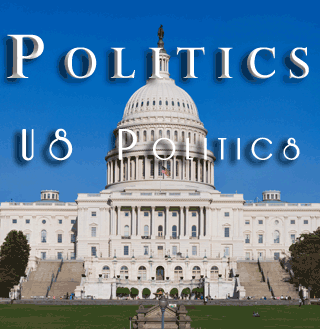Business and Politics
No Businessman has Ever Made a Successful President
When I was at Bucknell, the administration once held a faculty-trustee mixer to help those two bodies better understand each other. One of the board members told me that the university should be run more like a business. I responded by asking how many businesses did he know where most of the customers were more interested in the receipt for the product than the product itself.
He gave me a puzzled look, but no reply. So I went on, "How many businesses do you know that have to double-check their customers to make sure they even leave the premises with the product they have purchased. Still no reply. So, I went on to explain that a university sells knowledge to its "customers" (= students), most of whom merely want the receipt (= a degree). We have to double-check (= test) our customers regularly to ensure that they are taking with them the product they (or their parents) are buying.
Faculty and board members, most of whom are businessmen, each have sets of fundamentally different assumptions, vocabularies, and knowledge sets about two radically different systems. The basic goal of the wealthy businessmen is money--making a profit. The basic concern of the faculty is knowledge--accumulating, creating, and conveying it. This is why for-profit schools, schools run on a business model, never work.
The same argument applies to business and politics. Successful businessmen cannot even understand successful politicians. This explains Donald Trump's spectacular failures already in his first two months: the Michael Flynn debacle, the Muslim ban, the Yemen catastrophe, and the repeal of the ACA.
No businessman has ever made a successful president. The two occupations are based on two entirely different, highly complicated systems. Mastering one does not give you a key to the other. It takes decades to become a competent businessman and decades to become a competent politician.
The goal of the competent politician is to regulate society in an optimal fashion. He wants to regulate society as a whole, putting religious, educational, health, business, judicial organizations and individuals on a legally, if not economically, equal footing.
Republicans have tried to demonize the word "regulation", but regulation is the life's bread of government. In democracies, the government uses regulations (laws) to prevent the majority from overreaching and impinging on the rights of minorities. Preventing a white majority from enslaving a black minority, preventing a Christian majority from abusing a Muslim minority, preventing European majority from disenfranchising a native minority.
The Democratic Party has always been the "can do" party. It introduced social security, Medicare, the ACA ("Obamacare"); a democrat led us through the Depression and World War II. Roosevelt and the Democrats put in place the banking regulations that the Bush family and Republicans removed, leading us to the brink of another depression.
The Republican Party was once a "can do" party. President Eisenhower built the interstate highway system and Richard Nixon gave us both the Clean Air and Clean Water acts in his fight against pollution. He was also the first president to recognize "communist" China.
In his first two months President Trump has undone the clean air and clean water acts, undone Obama's pollution regulations and tried to undo health care insurance for 24 million Americans. The Senate just passed a bill to defund Planned Parenthood and his new budget undoes funding for Meals on Wheels, PBS, and NPR. He is repealing Obama's Clean Power Plan, which required states to reduce their carbon emissions by decreasing their dependence on dirty energy sources, like coal.
Deregulation and tax reduction under the Bush administration led us to the brink of a depression. Fortunately, Democrats led us away from that brink despite full-throated obstructionism of Republicans. Let's hope this same reactionary menu will not push us over a new one.




 Tweet
Tweet